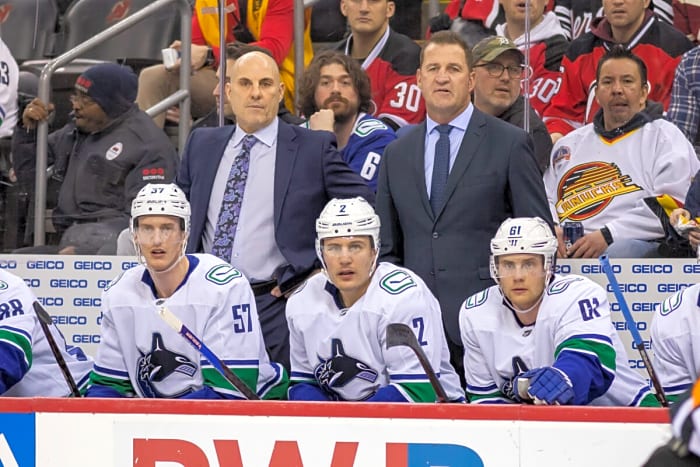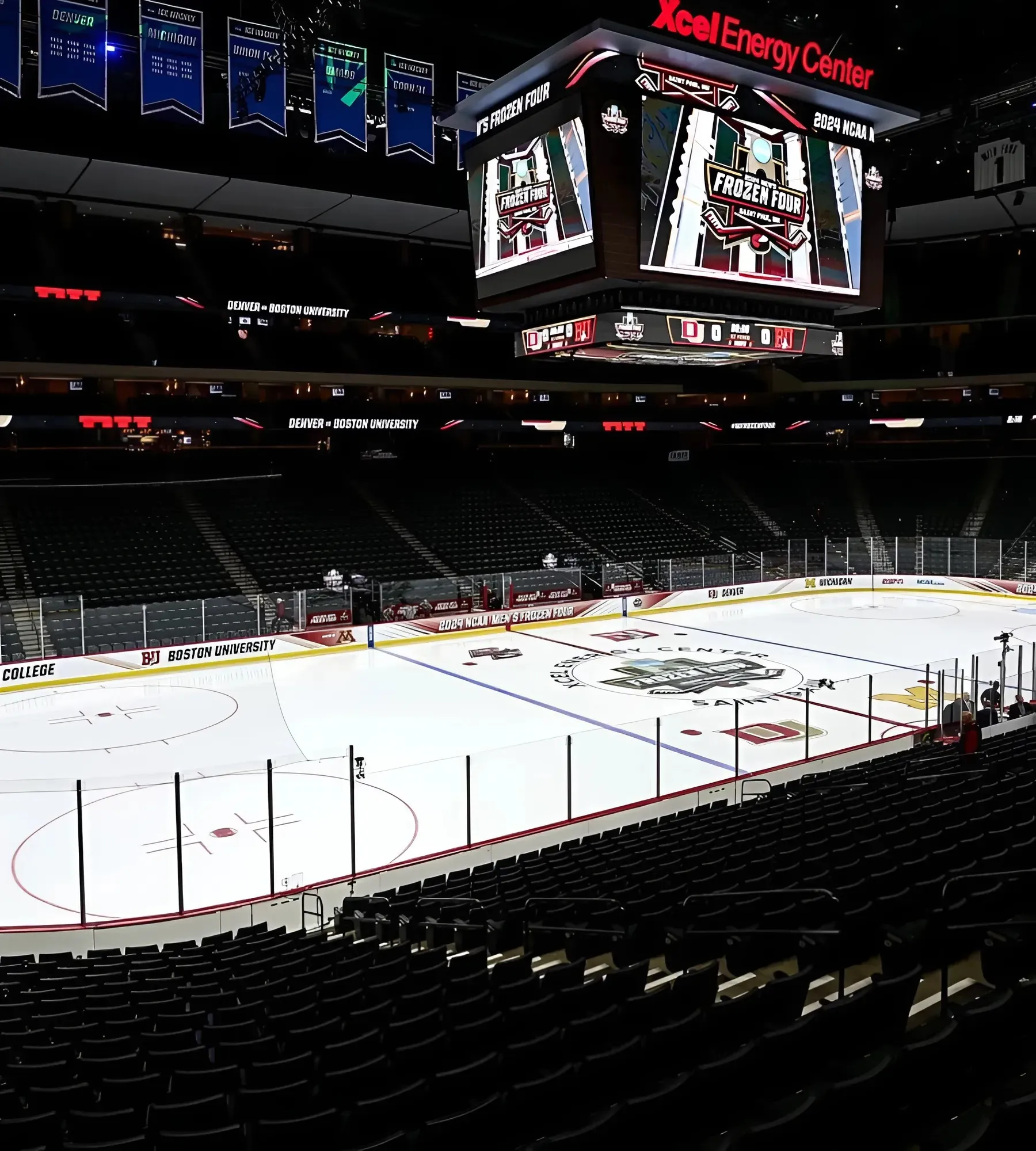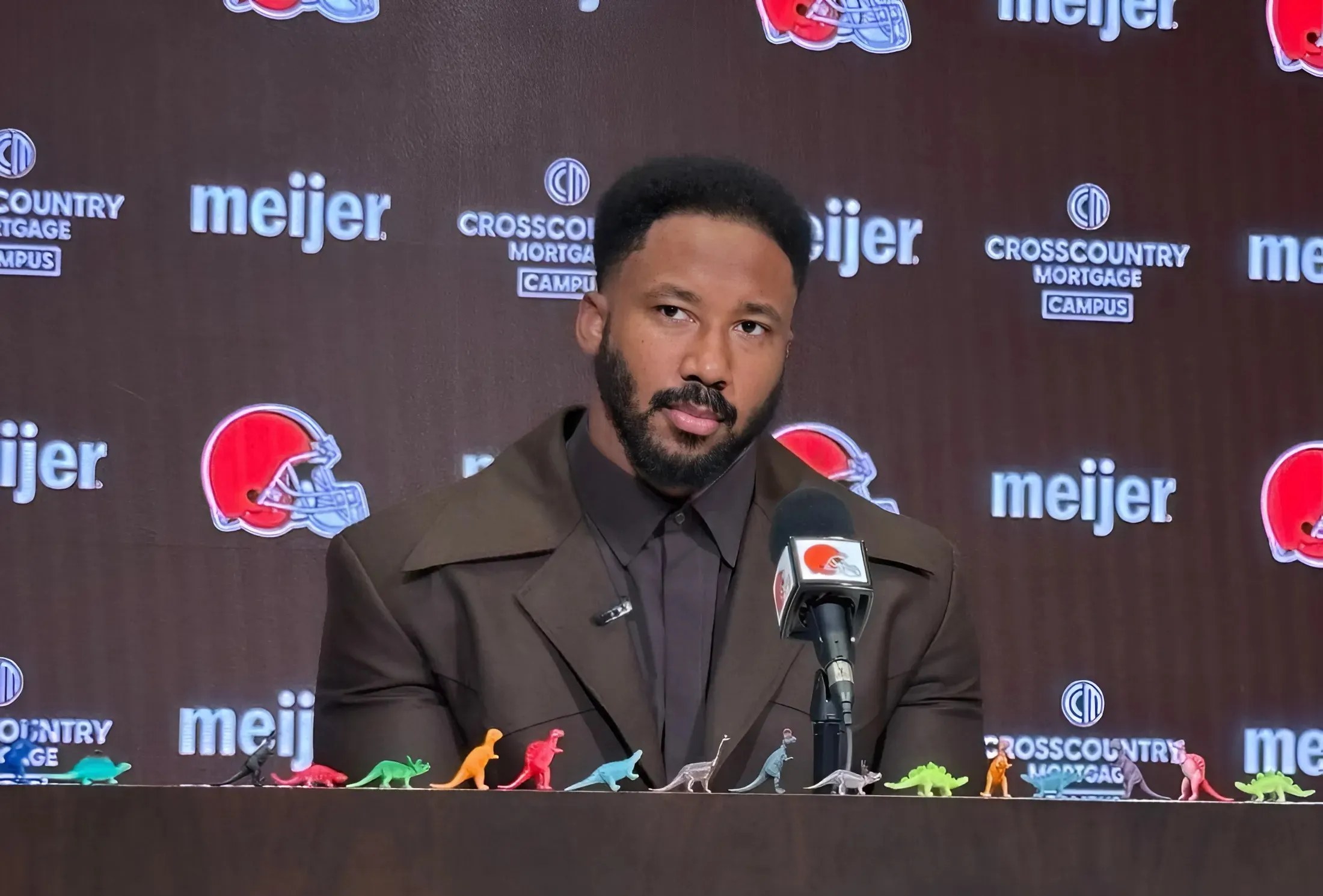It’s still hard to say what Rick Tocchet’s legacy will be with the Vancouver Canucks. He arrived at a turbulent time and quickly turned things around, guiding the team into the Stanley Cup Playoffs and leading them through a surprisingly strong season in 2023-24. His efforts were recognized with the Jack Adams Award as the NHL’s Coach of the Year at the end of last season—an honour that cemented the belief that Tocchet was the right man behind the bench.
However, this season didn’t go as planned. The Canucks struggled to find consistency, and internal turmoil ultimately derailed their playoff hopes. Amidst the chaos, an opportunity emerged with the Philadelphia Flyers, where Tocchet made his name as a player. When the Flyers coaching job opened, both sides showed immediate interest. He jumped at the chance last week, and the Canucks were left searching for a new direction. They’re entrusting that direction to Adam Foote.
Tocchet Opens Up in a Recent Interview About His Last Season in Vancouver
Tocchet spoke openly in a recent interview about his departure from Vancouver. His comments hint at his tension and challenges during his final season. As he begins a new chapter in Philadelphia, the final verdict on his Canucks tenure will have to wait. His coaching legacy may depend just as much on what he builds next with the Flyers.
When asked recently if he had “quit” on the Canucks, Tocchet could’ve fired back. He didn’t. He gave a measured, reflective answer. He said he understood why people might feel that way but made it clear he didn’t see himself as a quitter. There was no defensiveness, no denial—just awareness.
That tone matters. Because in today’s media climate, especially in passionate Canadian markets like Vancouver or Toronto, a coach showing vulnerability without crumbling is rare. It’s instructive, too.
Tocchet didn’t try to change anyone’s mind. He accepted that criticism is part of the job. That’s a powerful message—especially for young players still learning to handle scrutiny. Coaches who fight every narrative usually exhaust themselves and their team. Tocchet, instead, took the hit and moved on.
Watch the Show: When Realities Clash Inside the Room
The discussion also touched on one of the season’s biggest storylines: the rift between J.T. Miller and Elias Pettersson. Tocchet acknowledged he might have handled things differently. He admitted the situation didn’t play out well and that there were probably better paths in hindsight. That kind of public introspection is scarce in pro sports, where admitting regret can be seen as weakness. But Tocchet didn’t seem worried about feeding his critics. He was just being honest.
This speaks to a deeper cultural insight: not all players—or teams—are built to operate inside the noise. Some thrive on it, using it as fuel. Others collapse. Tocchet’s comments suggest that the Canucks, as currently constructed, haven’t quite figured out how to tune out the distractions without turning in on themselves. The “siege mentality” can be dangerous. It creates enemies out of fans, media, and even teammates. [Exactly what might be happening in Toronto with the Maple Leafs, for example.]
There was a subtle callout in Tocchet’s remarks, too—maybe directed at some of his players. He mentioned the weight of social media, the criticism public figures face, and how hard it is to be misunderstood or attacked. His tone wasn’t dismissive. It was empathetic. And you can imagine players were listening—some maybe struggling with their image, reactions, or the invisible pressure of expectation.
Now What: Building a Culture That Can Withstand the Fire
Tocchet’s approach offers a model for something sturdier than systems and line combos—it’s emotional infrastructure. It’s the groundwork for a culture where reflection is valued more than rage and where criticism doesn’t shatter belief. The real challenge for the Canucks isn’t whether they can contend on paper—it’s whether they can develop the internal maturity to face adversity without imploding.

That’s where Tocchet’s tone matters. It gives coaches permission to be real, to own mistakes, to live in an imperfect world, and still move forward. If the Canucks players follow that lead this season, there’s a chance that their locker room might finally become a place of honest accountability instead of silent fractures.
For fans watching from the outside, this kind of transparency, if sustained, might be the start of a new chapter. One where Vancouver isn’t just chasing results but becoming a team with staying power. A team that can take a punch and remain upright. A team that stops flinching every time the spotlight turns hot.
Tocchet didn’t say much. But what he did say, and how he said it, speaks volumes. Quietly powerful. Perhaps that can be a final aspect of his Vancouver legacy.



